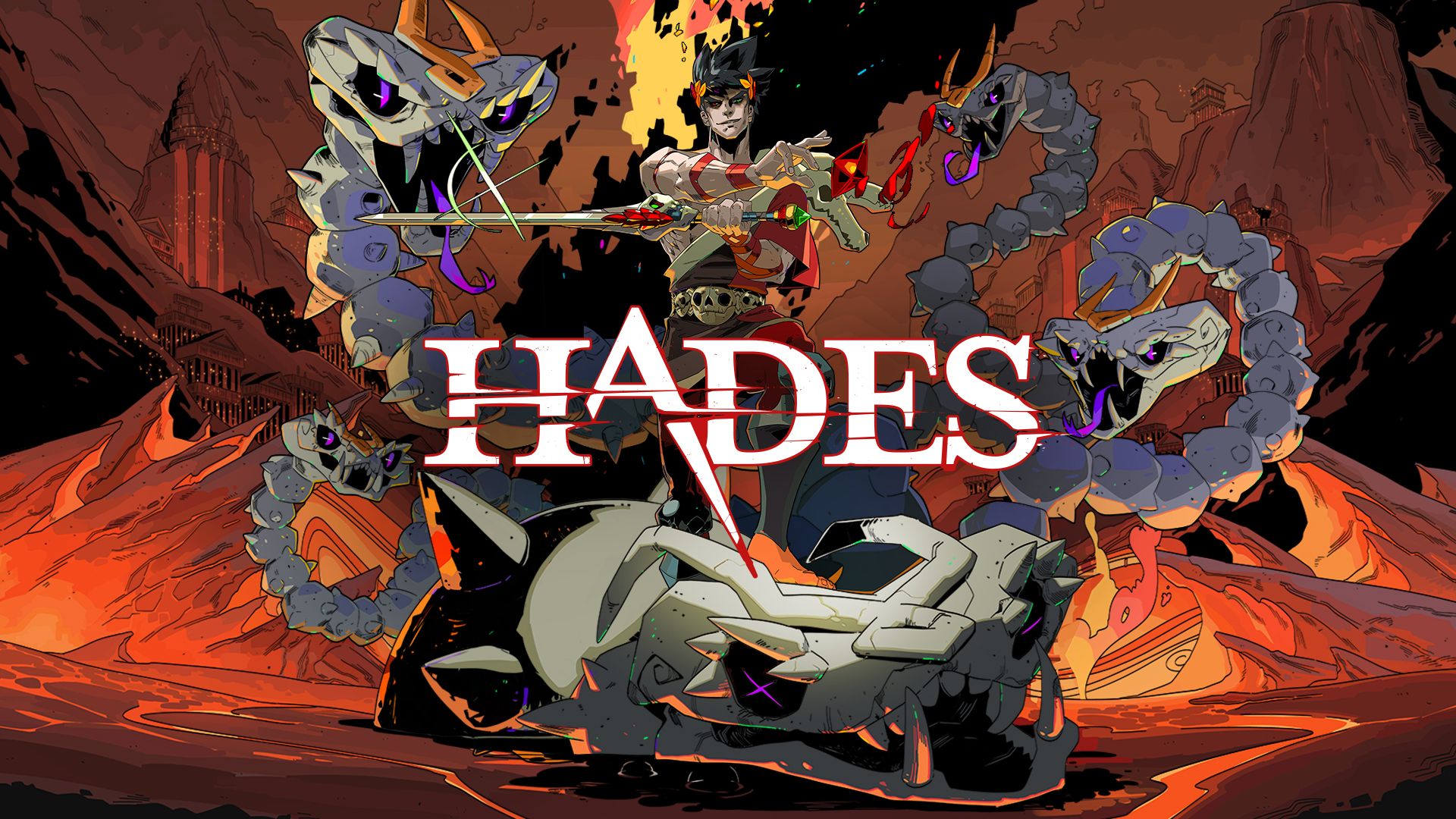Character art and design is by Supergiant Games art director, Jen Zee
Title: Hades
Platform: Nintendo Switch, Windows/Mac
How Gay Is It?
Very!! Hades is a game based on Greek mythology, so it is, of course, full of criss-crossing lines of polyamorous romance and family drama. Canonically queer relationships play out both between NPCs (Achilles & Patroclus) and as an available romance option for the main character, Zagreus – who is bisexual. In fact, Zagreus can romance multiple characters of various genders simultaneously without conflict, which is about the queerest gift a game has given mankind.
On top of that, Hades brings Zagreus into contact with numerous Greek gods and characters of lore, many of whom bring a fairly open and queer-coded vibe to their interactions and relationships with Zagreus and the other Olympians. Chaos, the primordial being the existed prior to everything else, is never gendered and is referred to by gender-neutral pronouns.
And finally, though a minor point, all the characters in Hades are extremely hot, flirtatious, and likely to incite a gay awakening in players of all genders and dispositions.
Overview
Supergiant Games is the studio behind fan-favorite indie games Bastion, Transistor, and Pyre – and their latest release, Hades, is perhaps the greatest of them all.
The official description reads:
Hades is a rogue-like dungeon crawler in which you defy the god of the dead as you hack and slash your way out of the Underworld of Greek myth.
But oh-ho-ho it is so much more than that.
The structure is simple: Zagreus must fight his way from the House of Hades up through the regions of the Underworld: Tartarus, Asphodel, Elysium, and the maze-like Temple of Styx out through the gate that leads to the mortal world in Greece. He battles through procedurally generated rooms with monsters and traps that shift with each region, and is able to explore forking paths that each grant him different boons as he completes rooms.
If & when you die – because you will, often – you crawl out of a pool of blood, revived & back in the House of Hades to try again. You'll get to try again, endlessly, meeting and conversing with gods and other characters along the way and deepening your relationships as you go.
Eventually, you'll make it out. And I won't spoil the story – but you'll have plenty of reason to keep making it out, over and over again, as you learn more about Zagreus, his family, the gods, and the heroes that dwell in the Underworld.
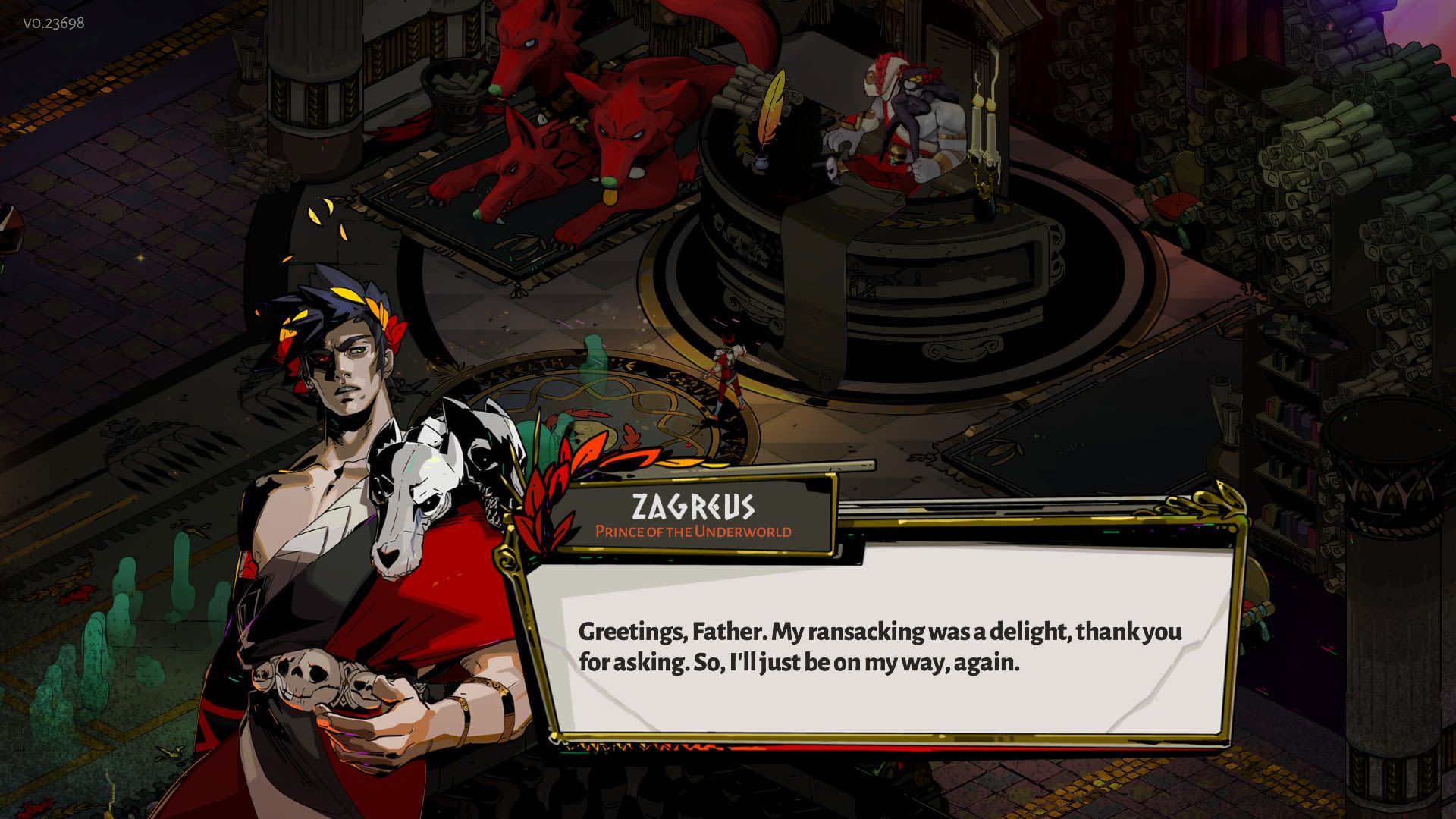
Mechanically, Hades is just good, undeniable fun. There are 6 different weapon bases to choose from – a sword, a spear, a shield, a bow, gauntlets, and a gun. And each is eventually upgradable and customizable as you earn a resource called Titan's blood on your runs. They each offer different gameplay styles, and I've loved each of them for different reasons – discovering new favorites that completely changed my play style as the game went on.
Most importantly Hades hits all three must-haves for me in gameplay:
- You can pet the dog (Cerberus!) – though he only likes it on one of his three heads. There's even a nice vibrational haptic to give the good boy scratches a better feeling.
- You can romance the men (one of them, anyways) – as the game stands now, there are three romance options: Megaera (a fury), Dusa (a floating Gorgon head and house servant), and Thanatos (broody god of Death, childhood friend, and pseudo foster brother). You also get to throw vibes at Achilles, but his heart belongs to another (Patroclus 💗).
- There is an easy mode! God mode – which can be enabled and disabled at will – gives you a +2% stacking protection from damage each time you die, making you tougher and tougher the more you lose until you just... won't anymore! I actually spent some runs dying early on just so I could buff up and have an easier time in future boss battles. Around the 70% mark, I stopped dying altogether.
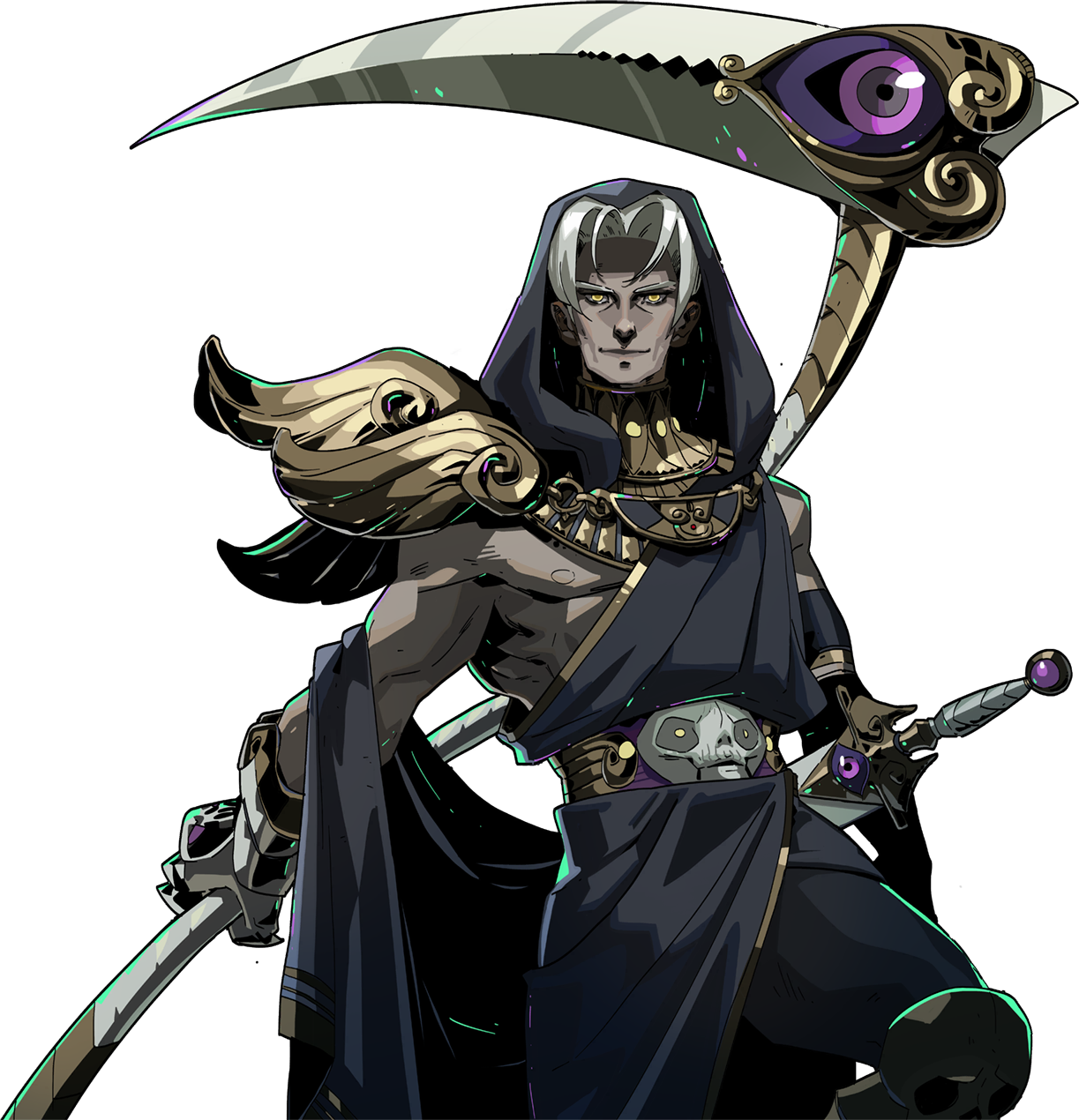
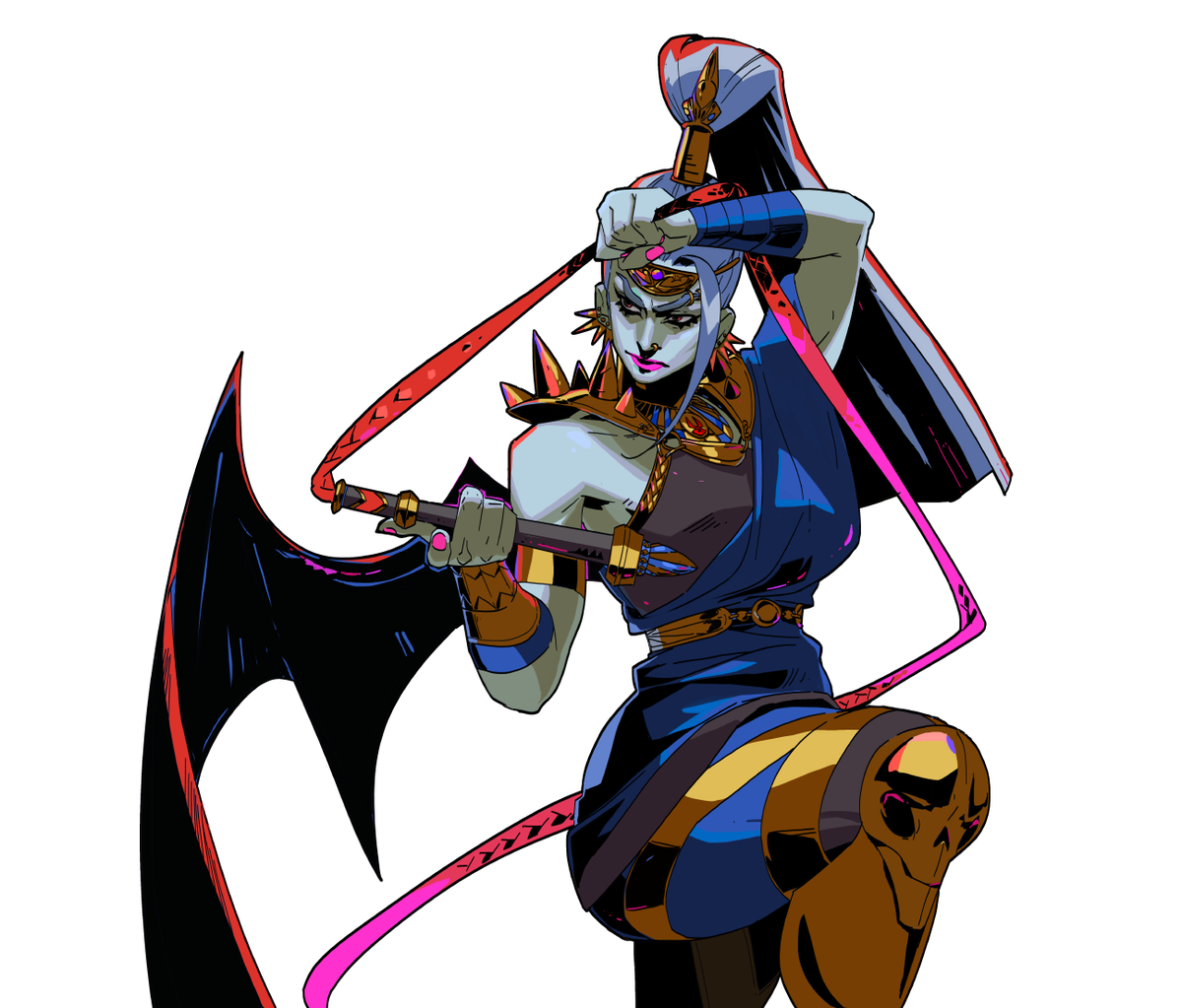

There is such strong attention to design woven into the very fabric of this game. Art director and character designer Jen Zee is directly responsible for the stunning character portraits I couldn't help but litter throughout this page.
The backgrounds, the sound design, the battle effects and animations – every detail is rendered beautifully to create a gorgeous and immersive experience.
One of the standout features is Hades attention to music. One of the characters you interact with and aid is Orpheus, the court musician that has lost his love Eurydice to another region of the Underworld. In canon, Orpheus is responsible for much of the music you'll hear throughout the game (in reality, its produced by long-time Supergiant collaborator Darren Korb). And there are a few songs featuring vocals by Eurydice herself (recorded by Ashley Barret) – in fact, entering Eurydice's chamber in Asphodel and hearing her song is always a welcome and heartwarming break from the battle grind.
At the end of the game (the real end), you'll even get to hear an incredible rock duet between Opheus & Eurydice – In the Blood. The music in Hades is crafted so superbly that I've had the soundtrack on repeat since completing the game earlier this morning.
Narratively – well, it's hard to say enough about how much joy this game brought me. In fact, I'll plug another review by Ash Parrish for Kotaku that does a much better job at explaining the queer joy that underpins the story in Hades.
She outlines the quality of Zagreus' character that makes his POV so easy to follow along with:
Beyond being an utterly gorgeous disaster bisexual, Zagreus’ most attractive feature is how disarmingly tender he is. He has all the hallmarks of your typical cantankerous bad-boy. He is the prince of the Underworld, who resents his father, struggles with abandonment issues, and whose only talent it seems is killing monsters. I would have expected him to be some grimdark, I’m-not-here-to-play-nice kind of guy. But in his conversations with people, even people that annoy him, he is unfailingly gentle and jovial.
And that quality extends to the rest of the characters as well:
In fact everyone, including main antagonist Hades and the universally reviled Theseus, has this caring softness to them that enhances their blinding attractiveness to cosmic levels. Zagreus, full of concern for his friend Dusa, asks her if she’s okay with him killing other gorgons. Asterius, slain by Theseus in life, becomes bound to him by camaraderie and respect in death. Even Megaera, after being slain by Zagreus countless times, develops a fondness for him, and warns him to be careful whenever he ventures out to escape. Everyone loves everyone else and that is just so awesome to see—especially in 2020 when even human compassion is in rare supply. [Ash Parrish, Why Everyone's Horny For Hades, Kotaku]
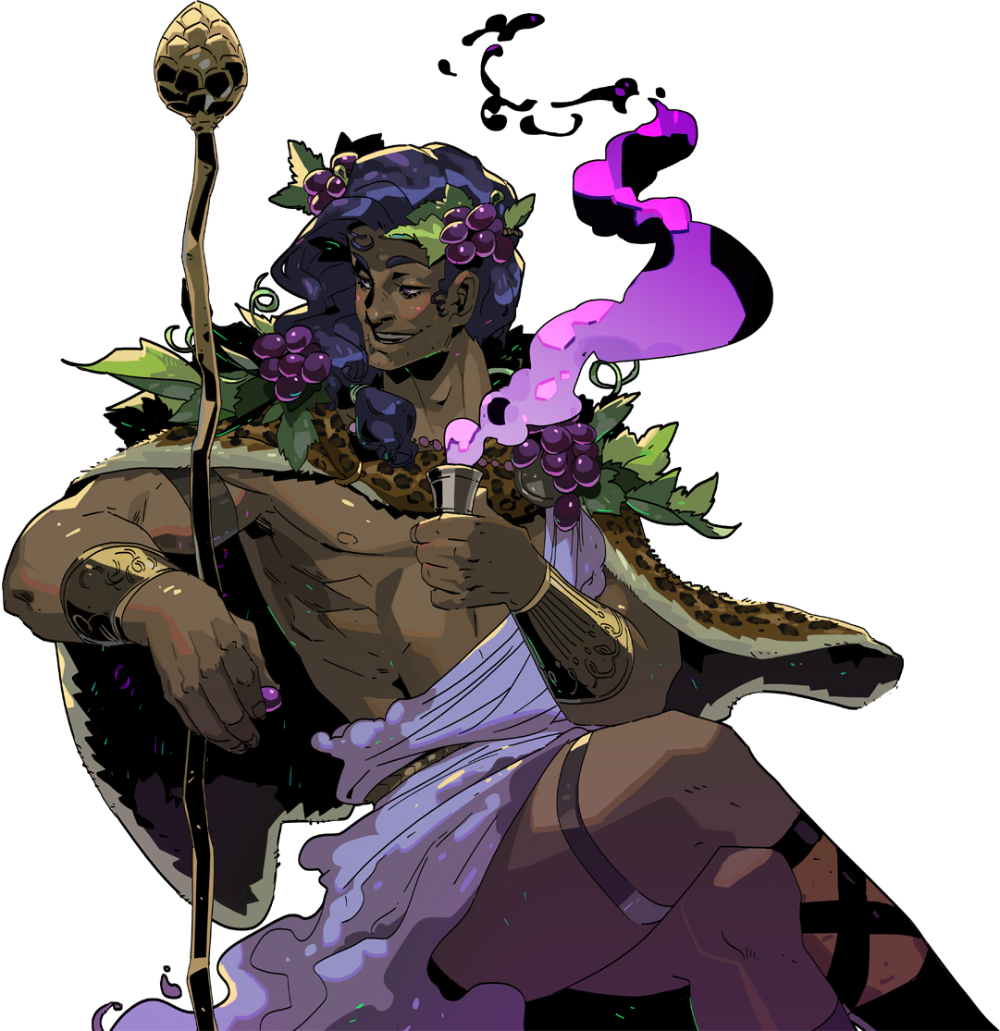


Don't get me wrong – Hades does, at its center, revolve around familial and interpersonal conflict. But it also offers an uncommon solution to navigating that conflict: deep compassion, understanding, forgiveness, and love.
This is nowhere more apparent than in the Trial of the Gods rooms that you'll encounter on your runs through the Underworld, demarcated by two godly boons appearing as the previewed reward. In these rooms, Zagreus must choose between one of two gods' boons. The spurned god who you did not select will then comment on your perceived betrayal, and you'll need to fight through waves of enemies who are aided by that god in order to clear the room. At the end, though, that god forgives you – often jokes and re-affirms their love for you and commitment to your cause – and gifts you their boon anyways.
Furthermore, the real narrative of the game plays out not just in the successive campaigns of destruction through the Underworld, but in the optional relationship building you are given the opportunity to explore with almost every character through the gifting of Nectar and Ambrosia. You get to learn more about them, spend time with them at the lounge, help them repair old wounds and reunite lost loves, and in some cases pursue your own budding romance with them.
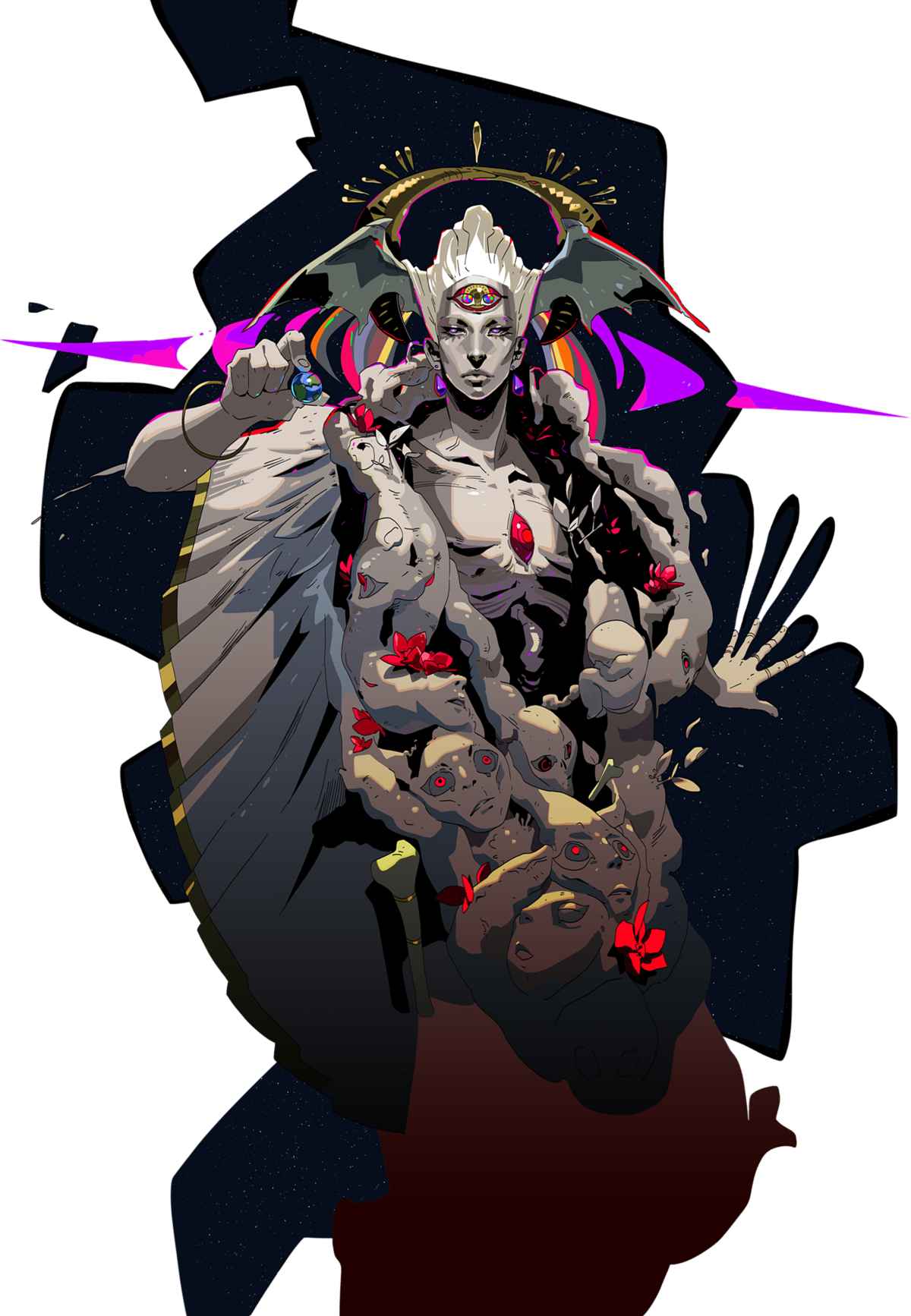
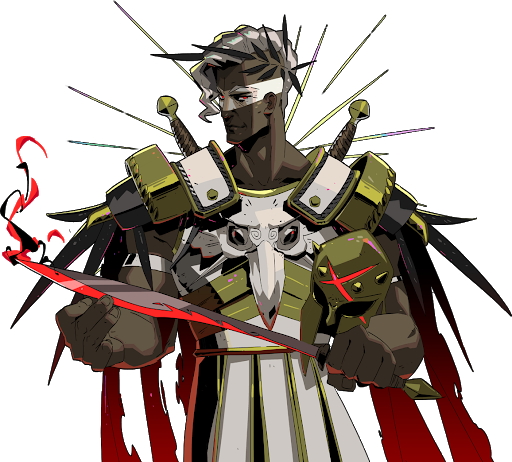
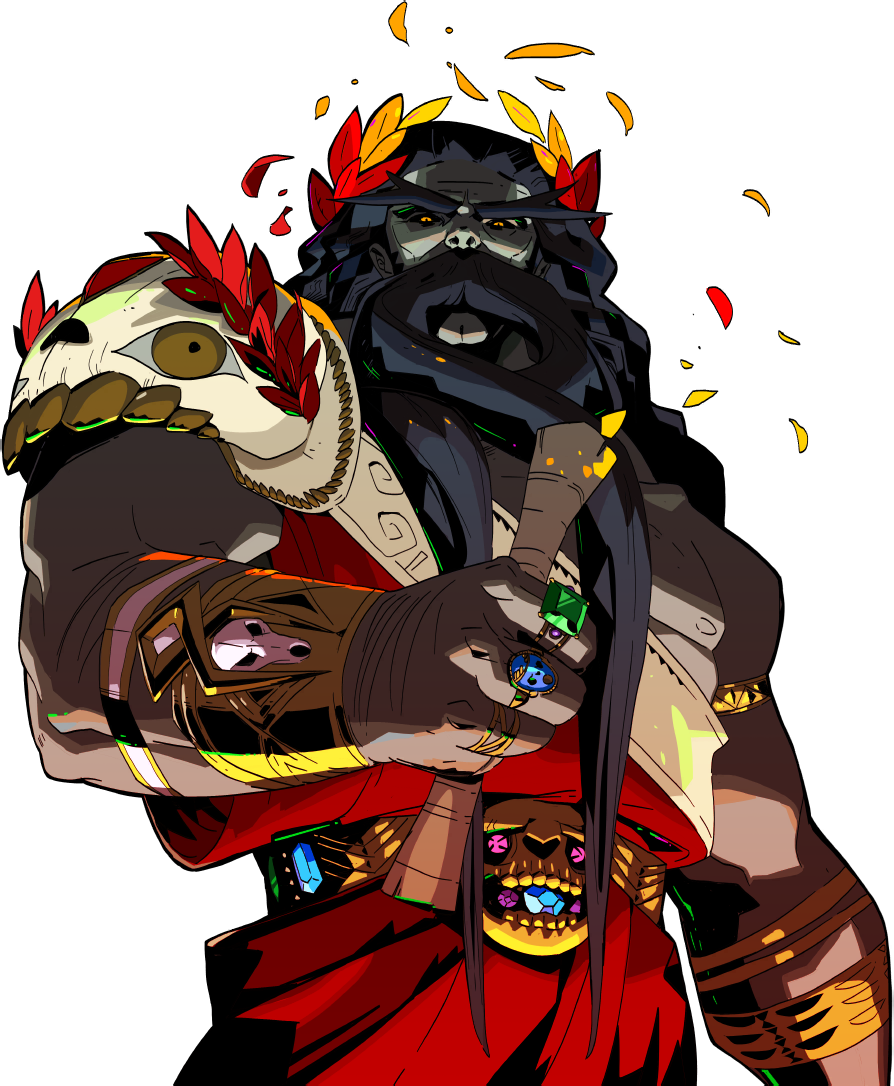
Not to put too fine a point on it, but many queer people may have rocky relationships with family – or perhaps no relationship at all. It's one of the reasons why found and chosen families are so prevalent and important among the queer community: they offer opportunities for healthy and unconditional love. For affirmation and for healing. So to play through Hades, which is to be dropped into the messy familial dramatics of Greek myth, and then be offered endless waves of support from your distant family as you work to heal the scars of your own parentage?
Well, that's the cathartic release I didn't know I was waiting for.
For more queer content, follow us on Twitter @biggayuniverse or subscribe for email updates below 💗

